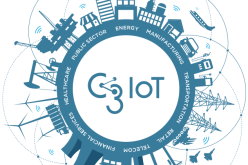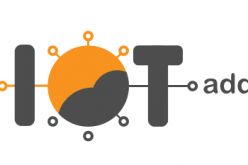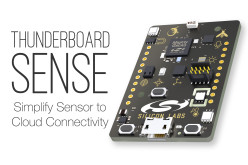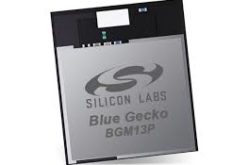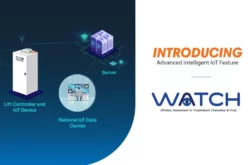How IoT Redefines What Sales Success Looks Like

Back in the 1960s the successful salesperson was typically seen as a confident and trusted ally that helped you solve a variety of business issues. It’s a given that the product or service had to work; the core of the relationship, however, was personal. It was between two people who trusted each other and were committed to each other’s success.
Without the benefit of smartphones, cloud applications, big data or analytics, salespeople possessed deep understanding of their industry, market trends, products and usage best practices, and customers’ preferences as well current and anticipated needs. It’s arguable that sales people back in those days knew their customers better than we do today. The measure of a successful sales person was consistently exceeding quota, respected by their peers and high customer loyalty.
Technology redefined how we think of the salesperson. We began to believe that successful sales people could be made. In the 1980s a movement began to standardize sales processes, how they thought and the activities that filled up their days. From SPIN selling, Miller Heiman Blue Sheets and “Dress for Success” to today’s predictive analytics and Account Based Selling, a tremendous amount of effort is spent on teaching sales people to replicate specific actions, steps, processes and communication styles. Technology is available to help them know which leads to pursue, provide real-time coaching, and recommend what up-sell product to offer all in the unwritten belief that successful sales people can be built.
“Today it’s about copying the practices and methodologies of ‘A’ players to help ‘B’ players become more than just gifted amateurs,” shared Leslie Stretch, CEO of Callidus Cloud, a cloud-based sales, marketing, learning, and customer experience solutions vendor.
What stands between the customer and the purchase order is the sales person. That is about to change rapidly and dramatically by the Internet of Things or “IoT” for short.
IoT disintermediates B2B account management.
Back in the 1960s the successful salesperson was typically seen as a confident and trusted ally that helped you solve a variety of business issues. It’s a given that the product or service had to work; the core of the relationship, however, was personal. It was between two people who trusted each other and were committed to each other’s success.
Without the benefit of smartphones, cloud applications, big data or analytics, salespeople possessed deep understanding of their industry, market trends, products and usage best practices, and customers’ preferences as well current and anticipated needs. It’s arguable that sales people back in those days knew their customers better than we do today. The measure of a successful sales person was consistently exceeding quota, respected by their peers and high customer loyalty.
Technology redefined how we think of the salesperson. We began to believe that successful sales people could be made. In the 1980s a movement began to standardize sales processes, how they thought and the activities that filled up their days. From SPIN selling, Miller Heiman Blue Sheets and “Dress for Success” to today’s predictive analytics and Account Based Selling, a tremendous amount of effort is spent on teaching sales people to replicate specific actions, steps, processes and communication styles. Technology is available to help them know which leads to pursue, provide real-time coaching, and recommend what up-sell product to offer all in the unwritten belief that successful sales people can be built.
“Today it’s about copying the practices and methodologies of ‘A’ players to help ‘B’ players become more than just gifted amateurs,” shared Leslie Stretch, CEO of Callidus Cloud, a cloud-based sales, marketing, learning, and customer experience solutions vendor.
What stands between the customer and the purchase order is the sales person. That is about to change rapidly and dramatically by the Internet of Things or “IoT” for short.
With IoT, devices and machines are starting to automatically send purchase orders for inventory, replacement parts and repair services directly to vendor computers. The sales person is out of the picture. IoT disintermediates B2B account management. No one needs the sales person because there is no one for the sales person to talk to – or is there?
The question that is on everyone’s mind is — What is sales’ role when machines take care of themselves and order for themselves?
Contrary to obsoleting sales, IoT shifts the definition of sales success back 60 years to a time when deep relationships mattered. Success will be defined by the long term value, as defined by the customer, generated by the sales person. Value that is frequently beyond the product or service he or she is selling. Relationship trumps everything.
What IoT demands is that the successful sales person be the consummate professional relationship builder, behaviorist and strategic advisor that takes their business personally. There is evidence that the shift is already underway – not from how CEOs think of their sales stars but in the actual characteristics of today’s sales “A” players.
“The Persona of Top Sales Professionals,” is a recent study of over 1,000 sales professionals by Steve W. Martin that was sponsored by Velocify, a sales acceleration platform defines the personal attributes, attitudes and actions of successful sales people who achieved more than 125% of their quota last year. The study focused on six areas: Focus and motivation, career orientation, personal attributes, customer interaction strategy, attitude, and self-perception.
We all know that highly successful sales people are driven by much more than money or greed as Martin calls it. What may be surprising is the study’s finding that being recognized by their peers and held in high esteem “based upon their knowledge and the recognition that comes along with being thought of as an expert” is as important as money. Quota-busters “believe that their knowledge is their most powerful attribute” and “are masters of language…[and] accomplished communicators who know what to say and, equally important, how to say it.”
The study also found that sales super stars rely on their intuition a bit more than pure rational logic when making critical decisions. Their understanding of human nature, and of themselves, and drawing on those insights at key times is a hallmark of consistently over-quota achievers defined as people who exceed quota over 90% of their careers. While pure-logic decision makers also exceed quota, they just don’t do it as often as the sales person that listens to their intuition a bit more closely.
When it comes to how the most successful sales people approach customer relationships, the overachievers focus on “getting customers to emotionally connect with them” followed by customizing their sales approach and asking the tough questions in ways that showcase their knowledge and expertise.
The bottom-line is that successful salespeople in the era of IoT are focused, as they were in the 1960s, on the emotional, political and personal drivers of the buyer. The study found that successful sales people are able to “build a trusted relationship and personal friendship in a short period of time.” To the sales person it’s about more than just the sale, it’s about owning a personal responsibility for and a dedication to their client’s success.
Source : Forbes






